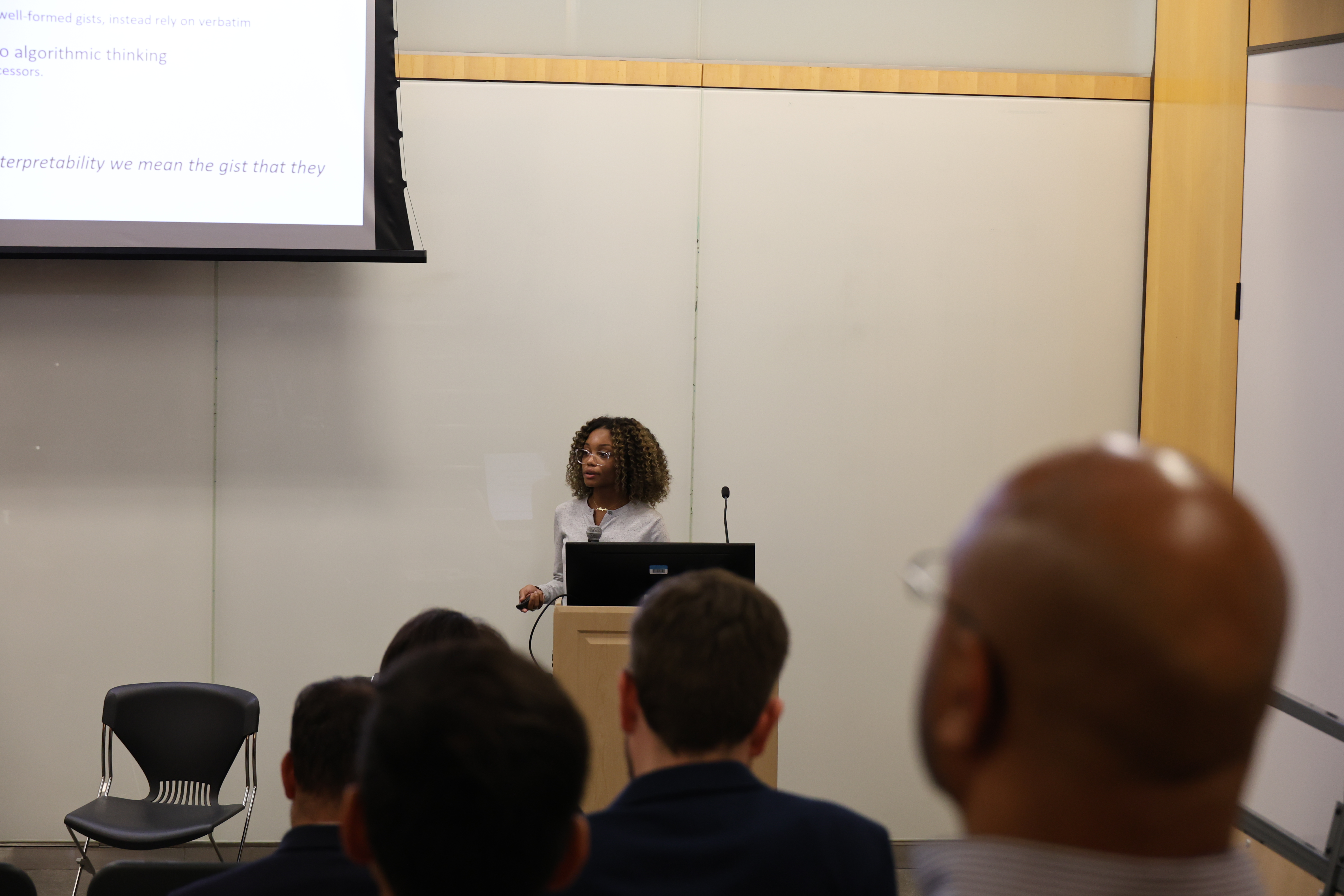The rapid development of artificial intelligence (AI) presents both tremendous opportunities and inherent risks. As AI continues to revolutionize various industries, it becomes crucial to strike a delicate balance between seizing the benefits and addressing the risks. GW Engineering is supporting the discussion around how to strike this balance in systems engineering by collaborating with the U.S. Army DEVCOM Armaments Center Systems Engineering Directorate and the Systems Engineering Research Center to hold events such as the 2023 AI4SE & SE4AI Workshop.
The AI4SE & SE4AI workshop brought individuals from government, industry, and academia together in the Science & Engineering Hall on September 27 and 28 to explore the intricate relationship between AI and systems engineering through various panels and presentations. The workshop theme, “Balancing Opportunity and Risk: The System Engineer’s Role in the Rapid Advancement of AI-Based Systems,” encompassed five distinct tracks: the SE4AI, AI4SE, Human-AI Teaming, and Trustworthy AI track.
GW Engineering students had the opportunity to lend their expertise in Trustworthy AI and Human-AI Teaming tracks to attendees by presenting their current research. On day one, graduate student Alaysha Shearn, advised by Engineering Management and Systems Engineering (EMSE) Associate Professor David Broniatowski, presented the study, “Evaluating the Explainability and Interpretability of AI Systems.” The objective of this study was to create techniques and measures for evaluating the interpretability and explainability of Machine Learning systems, specifically in the healthcare sector.
“The question we’re asking is, can the doctors understand the model enough to notice when bias exists?” said Shearn.
On day two, Ph.D. student Aditya Singh, advised by EMSE Professor Zoe Szajnfarber, presented the study, “What is Human in the Loop, Really?” This study investigated how AI systems can be architected to utilize human oversight effectively. Professor Szajnfarber also presented her research on the opportunities and risks of incorporating large language models in the systems engineering and design workflow later in the day. Both studies examined the collaboration between humans and AI to determine how to maximize the synergistic potential while addressing ethical and social implications.
Overall, the AI4SE & SE4AI workshop fostered discussions and insights on the responsible deployment of AI in systems engineering. During the keynote panel on day two, Professors Broniatowski and Szajnfarber demonstrated how there is still much to be examined concerning promoting trust in AI systems by explaining how the difference between ethical and safety frameworks is not understood in the same way by each community who are the ones designing these systems. Through conferences like this, GW Engineering hopes to continue exploring how systems engineering can use AI systems responsibly and support the development of robust and ethical AI systems.


